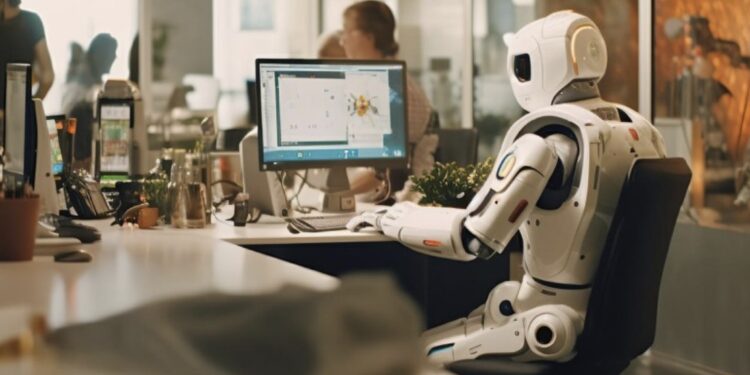With artificial intelligence on the rise, infiltrating industry after industry, from manufacturing companies to business schools, American labor unions are stepping up efforts to protect workers from the threat of powerful robots replacing them.
With the specter of large-scale automation and job loss on the horizon, unions are calling for transparency, legal protections, and a strong say in how AI is used in the workplace.
There’s a palpable fear of artificial intelligence driven job loss across the US work force. Some experts , among them, the CEO of Anthropic , believe that generative AI by itself is enough to erase as much as half of the low-skilled white-collar labor market, driving unemployment much, much higher.
Jobs for blue-collar workers are just as threatened as developing “physical A.I.” is poised for a new generation of robots capable of much more than rote jobs.
“Understand, as workers, the one thing that we have is to withhold our labor being a way to improve our lives. What happens when to AI when that goes away?” Aaron Novik, an ALU organizer, toldthe outlet, which captured something of the existential threat AI represents to the leverage enjoyed by traditional workers.
Unions such as the International Brotherhood of Teamsters are actively lobbying in favor of state-level bills to limit autonomous vehicles and robots, and there’s been uneven progress as some governors have vetoed such bills. At a federal level, former President Biden’s rules on labour organisations aimed at increasing transparency and worker input into AI decisions were quickly undone by former President Trump, further stoking union concerns about a regulatory void.
Nevertheless, there have been some high-profile successes within unions. The CWA is taking a proactive approach to educating and training its members about AI and has also been advocating that AI protections be included in collective bargaining agreements. And SAG-AFTRA has negotiated contractual protections concerning actors’ digital likenesses that provide for consultation, and compensation. Dock workers and tech sector employees have also won clauses that either limit or guide automation.
But these piecemeal victories point to a deeper problem. “Incremental contract-by-contract gains take a long time,” HeeWon Brindle-Khym of the Retail, Wholesale and Department Store Union (RWDSU) said. The US labor movement is decentralized in a manner that makes sweeping national reform difficult to achieve.
The unions insist that it is not their aim to prevent technological progress, but to make sure that the benefits of AI are more fairly distributed and that workers play a role in determining their fate. As AI’s influence spreads, the big question is whether working people can adjust rapidly enough to protect themselves from the new reality , an economy that is mainly about artificial intelligence.










![Online Scam Cases Continue to Rise Despite Crackdowns on Foreign Fraud Networks [Myanmar] Online Scam Cases Continue to Rise Despite Crackdowns on Foreign Fraud Networks [Myanmar]](https://sumtrix.com/wp-content/uploads/2025/06/30-12-120x86.jpg)




